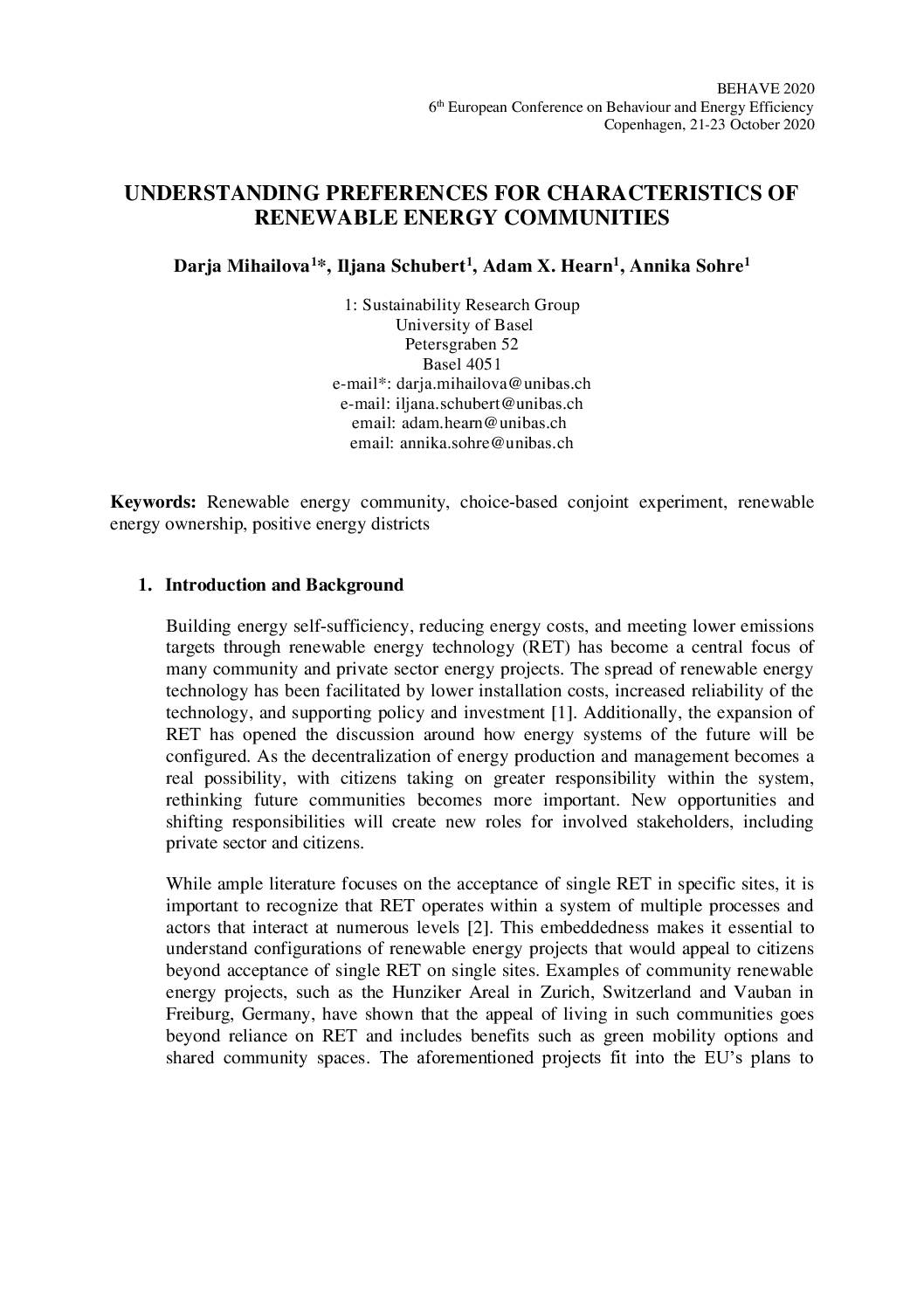Building energy self-sufficiency, reducing energy costs, and meeting lower emissions targets through renewable energy technology (RET) has become a central focus of many community and private sector energy projects. The spread of renewable energy technology has been facilitated by lower installation costs, increased reliability of the technology, and supporting policy and investment [1]. Additionally, the expansion of RET has opened the discussion around how energy systems of the future will be configured. As the decentralization of energy production and management becomes a real possibility, with citizens taking on greater responsibility within the system, rethinking future communities becomes more important. New opportunities and shifting responsibilities will create new roles for involved stakeholders, including private sector and citizens.
Download sourceShare this

Sectors: Power sector, Renewables
Country / Region: Global
Tags: carbon targets, citizens, economic cost, emissions, energy, private sector, projects, renewable energies, stakeholders, targetsIn 1 user collection: Session 6a: Energy Communities and Related Behaviour Strategies to Energy Efficiency
Knowledge Object: Publication / Report
Author: Darja Mihailova, Iljana Schubert, Adam X. Hearn, Annika Sohre
Content:

